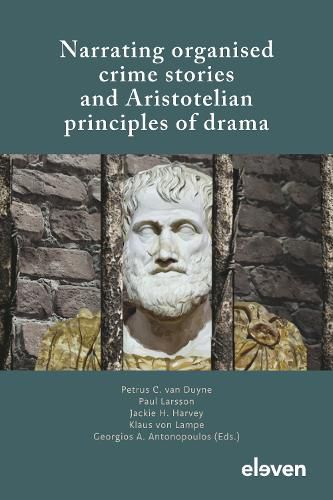Readings Newsletter
Become a Readings Member to make your shopping experience even easier.
Sign in or sign up for free!
You’re not far away from qualifying for FREE standard shipping within Australia
You’ve qualified for FREE standard shipping within Australia
The cart is loading…






This title is printed to order. This book may have been self-published. If so, we cannot guarantee the quality of the content. In the main most books will have gone through the editing process however some may not. We therefore suggest that you be aware of this before ordering this book. If in doubt check either the author or publisher’s details as we are unable to accept any returns unless they are faulty. Please contact us if you have any questions.
This volume contains the contributions of the 21st Cross-Border Crime Colloquium webinar hosted by the Norwegian Police University College, Kongsvinger and organised 22-24 August 2021. Despite the pandemic, the Colloquium Group decided to return to the ‘criminal normal’ and the related research on (cross-border) organised crime, corruption, labour exploitation, fraud, ecological crime and the search for criminal revenues. These are partly old themes, some getting renewed attention, such as the hidden wealth of corrupt political elite, whether Nigerian godfathers or Russian oligarchs.
A criminal theme with global implications is the growing ‘green-criminality’ or crime against the nature. Forests are illegally cut clear in Eastern Europe to satisfy the hunger of the European furniture industry: cheap furniture from stolen wood from the Carpathian or further east leaving behind devastated landscapes. Also, criminal waste trafficking from industrialised farming finding its way through criminal channels is a recognised cross-border organised crime.
In peer reviewed contributions international experts present a broad range of criminal phenomena and policies: from a 25-year review of organised crime in The Czech Republic, labour exploitation and Nigerian organised crime in Italy, Middle-Eastern criminal clans in Germany, and international fuel fraud to criminal asset recovery policy in the Netherlands.
$9.00 standard shipping within Australia
FREE standard shipping within Australia for orders over $100.00
Express & International shipping calculated at checkout
This title is printed to order. This book may have been self-published. If so, we cannot guarantee the quality of the content. In the main most books will have gone through the editing process however some may not. We therefore suggest that you be aware of this before ordering this book. If in doubt check either the author or publisher’s details as we are unable to accept any returns unless they are faulty. Please contact us if you have any questions.
This volume contains the contributions of the 21st Cross-Border Crime Colloquium webinar hosted by the Norwegian Police University College, Kongsvinger and organised 22-24 August 2021. Despite the pandemic, the Colloquium Group decided to return to the ‘criminal normal’ and the related research on (cross-border) organised crime, corruption, labour exploitation, fraud, ecological crime and the search for criminal revenues. These are partly old themes, some getting renewed attention, such as the hidden wealth of corrupt political elite, whether Nigerian godfathers or Russian oligarchs.
A criminal theme with global implications is the growing ‘green-criminality’ or crime against the nature. Forests are illegally cut clear in Eastern Europe to satisfy the hunger of the European furniture industry: cheap furniture from stolen wood from the Carpathian or further east leaving behind devastated landscapes. Also, criminal waste trafficking from industrialised farming finding its way through criminal channels is a recognised cross-border organised crime.
In peer reviewed contributions international experts present a broad range of criminal phenomena and policies: from a 25-year review of organised crime in The Czech Republic, labour exploitation and Nigerian organised crime in Italy, Middle-Eastern criminal clans in Germany, and international fuel fraud to criminal asset recovery policy in the Netherlands.